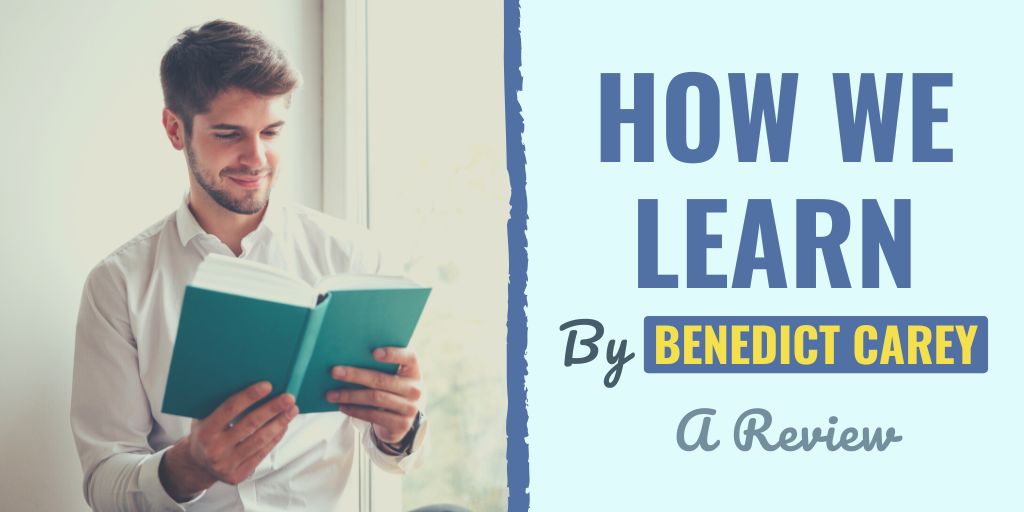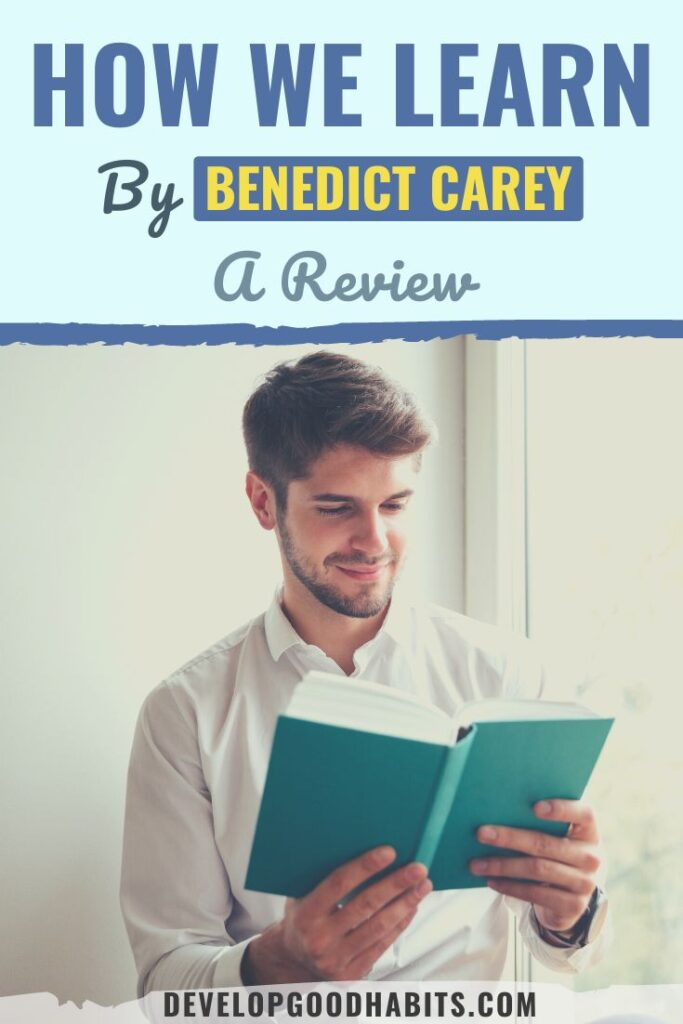Whether you are 14, 44 or 84, lifelong learning is essential to “keep up with the Joneses” in our modern world. This fact makes Benedict Carey’s book, “How We Learn” a book that everyone should read.
In How to We Learn: The Surprising Truth About When, Where, and Why It Happens, Carey teaches us HOW we learn and WHY we learn. But perhaps more importantly, he dispenses practical advice on how to learn efficiently and best retain the things we learn.
How We Learn is a Valuable Tool for Everyone
This information is essential for anyone and everyone. Student or professor. Rank novice or subject matter expert. Age and previous knowledge does not matter. First understanding how our brain learns and making the most of this learning can help anyone become a better learner.
How We Learn teaches us how the brain forms memories. It then gives us practical routines to ensure that you actually learn (and retain) the things that you are studying.
Rather than learning in a haphazard manner, Benedict Carey’s book gives the tools to becoming efficient about learning. How We Learn hands out the keys to getting the most out of time spent learning.
How We Learn is perfect for:
This book can even be a tool for memorizing daily trivia, like your client’s names or an expansive vocabulary for Sunday crosswords. Learning does not always need to be about a formal school environment.
It doesn’t matter. If you want to improve your learning skills and learn how to learn, then I highly recommend this book.
What How We Learn Teaches Us
How We Learn is rooted deeply in the science of memory. Carey showcases the experiments and science behind his ideas. More importantly, however, is the practical and practicable advice he offers us to improve our own lives.

Facts Carey discusses in his book:
How How We Learn Surprised Me
Some of the facts I found in How We Learn I “knew” or “felt” were true going in. But it was helpful to understand the science behind my gut instincts. However, some facts I was completely clueless about, but in one case I was completely wrong.
The thing that surprised me was how interruptions will affect what you learn. Being someone who cares deeply about being as productive as possible, I have always gone to great lengths to try to avoid interruptions. Some might even say insane lengths.
In fact, I have discussed the importance of avoiding interruptions for work quite frequently on this site. Even diving into details about how to avoid these “time sink” interruptions in many articles and books:
- How to be More Productive at Work
- 5 Steps for Maximizing your Productive Sweet Spot
- And even my book, To Do List Makeover
On Interruptions and Productivity
While my belief about interruptions and WORK is still 100% true. It seems I have been 100% wrong applying these productivity tools to learning.
In a specific study, Carey discusses students who were given small assignments. The group that was frequently interrupted while trying to complete these tasks was actually able to better remember those tasks that they were unable to complete.
This is because your mind is still working on solving the tasks in the background. Splitting focus like this is horrible for being productive but really might help you when learning new things.
A short study break—five, ten, twenty minutes to check in on Facebook, respond to a few emails, check sports scores—is the most effective technique learning scientists know of to help you solve a problem when you’re stuck.”
So if you are trying to learn something difficult, the answer may be to “interrupt” yourself. Go take a break. Go for a walk. Spread a long 3-hour study session out over four 45 minute “chunks”.
When you break up your learning, subconsciously you are still working on the learning. While this may affect your productivity in a negative manner, it will skyrocket your learning.
But too many interruptions can negatively affect your learning. If you need tips on how to focus better when studying, check out this video where we provide actionable strategies to avoid distractions.
Final Thoughts on How We Learn by Benedict Carey
Benedict Carey has created a book that should be read by everyone. It teaches us an essential and overlooked skillset: How to LEARN to LEARN.
Any lifelong learner should read this book with glee, picking up facts that will help them grow and learn more efficiently.
Even those who rarely “learn” may pick up quite a few practical memory skills that they can implement into their working lives. A must-read personal development book. Get this on your bookshelves now!
Finally, if you're looking for more books about learning, check out these blog posts:



